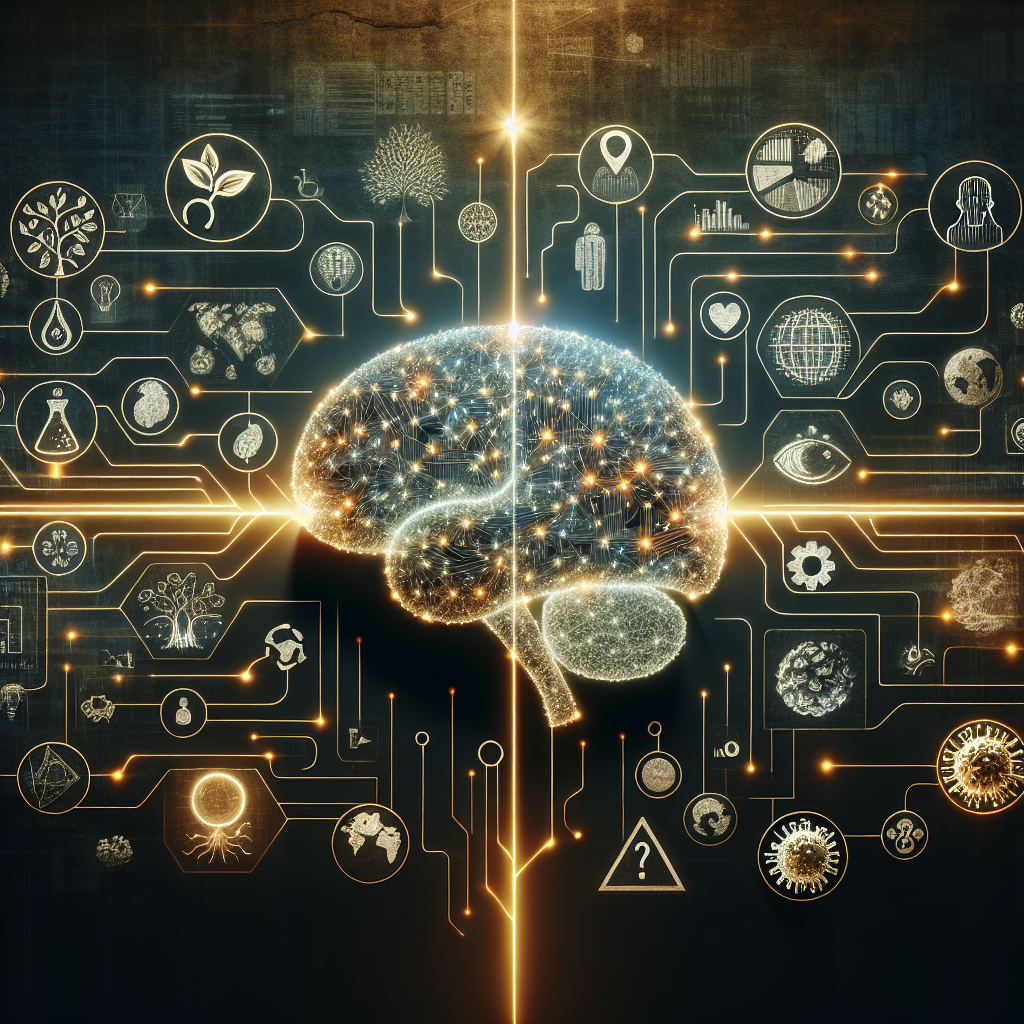Artificial General Intelligence (AGI) has the potential to revolutionize the way we address some of humanity’s biggest challenges. From climate change to poverty, AGI has the power to help us find innovative solutions to these complex problems. In this article, we will explore the role of AGI in solving humanity’s biggest challenges and discuss how this technology can be leveraged to create a better future for all.
What is Artificial General Intelligence?
Artificial General Intelligence, or AGI, refers to a type of artificial intelligence that is capable of learning and understanding any intellectual task that a human can. Unlike narrow AI, which is designed for specific tasks such as image recognition or natural language processing, AGI is more versatile and can perform a wide range of tasks with human-like intelligence.
AGI has the potential to significantly impact various industries and sectors, including healthcare, finance, transportation, and more. By combining the power of machine learning, deep learning, and natural language processing, AGI can analyze vast amounts of data and make informed decisions in real-time.
The Role of AGI in Solving Humanity’s Biggest Challenges
1. Climate Change
One of the most pressing challenges facing humanity is climate change. AGI has the potential to help us address this issue by analyzing climate data, predicting future trends, and developing strategies to mitigate the effects of global warming.
AGI can also help optimize energy consumption, improve renewable energy sources, and develop more sustainable practices in agriculture and transportation. By leveraging the power of AGI, we can create a more sustainable future for generations to come.
2. Poverty
Another significant challenge facing humanity is poverty. AGI can help us address this issue by identifying patterns and trends in poverty data, developing targeted interventions, and creating more efficient social programs.
By analyzing socioeconomic factors and demographic information, AGI can help governments and organizations better understand the root causes of poverty and develop strategies to lift people out of poverty. By leveraging the power of AGI, we can create a more equitable society where everyone has access to basic needs and opportunities for success.
3. Healthcare
AGI has the potential to revolutionize the healthcare industry by improving diagnosis accuracy, developing personalized treatment plans, and predicting disease outbreaks. By analyzing patient data and medical records, AGI can identify early warning signs of diseases and recommend the most effective treatments.
AGI can also help healthcare providers streamline administrative processes, reduce costs, and improve patient outcomes. By leveraging the power of AGI, we can create a more efficient and effective healthcare system that benefits patients, providers, and society as a whole.
4. Education
AGI can transform the way we educate future generations by personalizing learning experiences, adapting to individual needs, and identifying gaps in knowledge. By analyzing student data and performance metrics, AGI can recommend personalized learning materials, provide real-time feedback, and track progress over time.
AGI can also help educators develop innovative teaching methods, create immersive learning experiences, and improve student engagement. By leveraging the power of AGI, we can create a more inclusive and accessible education system that prepares students for success in the 21st century.
FAQs
Q: What are the potential risks of AGI?
A: While AGI has the potential to solve humanity’s biggest challenges, there are also risks associated with this technology. Some experts warn that AGI could lead to job displacement, privacy concerns, and ethical dilemmas. It is important to address these risks proactively and develop guidelines and regulations to ensure that AGI is used responsibly and ethically.
Q: How can we ensure that AGI is developed ethically?
A: To ensure that AGI is developed ethically, it is essential to involve diverse stakeholders in the decision-making process, including policymakers, researchers, industry leaders, and the public. By fostering transparency, accountability, and collaboration, we can ensure that AGI is used for the greater good and benefits society as a whole.
Q: How can individuals contribute to the development of AGI?
A: Individuals can contribute to the development of AGI by staying informed about the latest advancements in artificial intelligence, participating in discussions and debates about the ethical implications of this technology, and advocating for policies that promote responsible AI development. By raising awareness and engaging with experts in the field, individuals can help shape the future of AGI and ensure that it benefits humanity in the long run.
In conclusion, AGI has the potential to revolutionize the way we address humanity’s biggest challenges. By leveraging the power of machine learning, deep learning, and natural language processing, AGI can help us create a more sustainable, equitable, and efficient future for all. While there are risks associated with this technology, it is essential to address them proactively and develop guidelines and regulations to ensure that AGI is used responsibly and ethically. By working together and harnessing the power of AGI, we can create a better world for generations to come.

